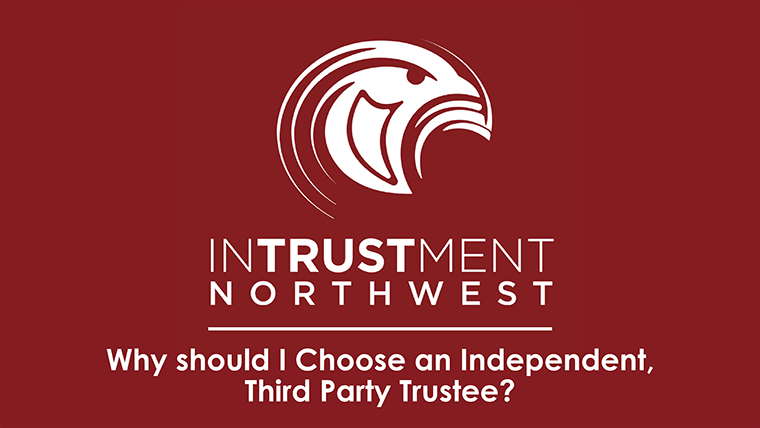Why Choosing an Independent, Third-Party Trustee is Essential for Your Trust
Selecting the right trustee is one of the most critical decisions when setting up a trust. While it may seem convenient to appoint a family member or close associate, choosing an independent, third-party trustee—such as a professional trust company—can provide significant advantages. This decision can ensure the trust is managed with impartiality, expertise, long-term consistency, and efficiency. Here’s why an independent trustee might be the best choice for your trust.
Impartiality and Conflict Resolution
One of the main benefits of appointing an independent trustee is their ability to remain neutral and impartial. Unlike a family member or someone with personal connections to the beneficiaries, an independent trustee has no emotional stake in the outcome. This neutrality helps prevent conflicts of interest and ensures that decisions about distributions and trust management are fair, objective, and in line with the trust’s terms.
In situations where disputes arise among beneficiaries—especially when personal relationships are involved—an independent trustee can act as a neutral mediator, providing an unbiased perspective that often leads to more effective conflict resolution. This approach promotes smoother trust operations and helps maintain family harmony by reducing the potential for emotional disputes.
Professional Expertise
Trust administration is often complex, requiring a comprehensive understanding of fiduciary responsibilities, legal requirements, investment management, tax law, and compliance. Many individual trustees, such as family members, may not possess the specialized knowledge required to handle these complexities effectively. Mistakes in trust management can lead to legal disputes, tax penalties, or even loss of trust assets.
Independent trustees, on the other hand, bring a wealth of professional expertise to the table. With a deep understanding of financial management, tax planning, and legal obligations, they are equipped to make informed decisions that optimize the trust’s performance and protect its assets. This level of expertise is particularly beneficial for trusts involving large assets, long-term planning, or multiple beneficiaries, ensuring that the trust is managed efficiently and effectively.
Consistency, Stability, and Long-Term Security
Trusts are often created to provide long-term financial security for beneficiaries, whether for a minor child, a person with special needs, or to preserve wealth across generations. A family member serving as a trustee may face personal challenges, health issues, or life changes that could affect their ability to serve in the long run. Family dynamics can also evolve, potentially leading to disputes or a breakdown in communication that might jeopardize the trust’s objectives.
An independent trustee provides stability and continuity that individual trustees often cannot. Unlike a family member who may be affected by unforeseen circumstances, a professional trustee’s role is defined by their commitment to the trust’s long-term objectives. This consistency is particularly vital for multi-generational trusts, where long-term administration is key to meeting the trust’s goals without interruption.
Administrative Efficiency and Privacy
Managing a trust involves meticulous attention to detail, from maintaining accurate records and filing taxes to adhering to regulatory requirements. An independent trustee is experienced in handling these administrative tasks efficiently, ensuring that all duties are performed accurately and in a timely manner. While there may be fees associated with hiring a professional trustee, their administrative efficiency often results in cost savings by preventing costly mistakes and improving asset performance.
In addition to administrative efficiency, an independent trustee provides a higher level of privacy and confidentiality. Family members or personal acquaintances may struggle to maintain confidentiality, particularly when family dynamics are involved. An independent trustee, however, ensures that sensitive information remains private, fostering a professional environment where the trust’s administration is handled discreetly and securely.
Conclusion
Choosing an independent, third-party trustee offers significant advantages over appointing a family member or friend. The impartiality, professional expertise, consistency, administrative efficiency, and privacy provided by an independent trustee help protect the trust’s assets, optimize its performance, and ensure that it is managed in line with the grantor’s intentions. Ultimately, an independent trustee provides a reliable and professional approach to trust administration, safeguarding the interests of all beneficiaries.
At Intrustment Northwest, we specialize in providing professional trustee services that deliver all of these benefits and more. Our team of experienced professionals is dedicated to managing trusts with integrity, impartiality, and expertise. Contact us today to learn how we can help manage your trust with the care and professionalism you deserve.
www.intrustmentnw.com | 360.694.5177 | marketing@intrustmentnw.com

